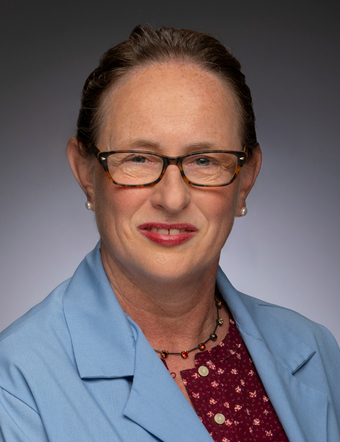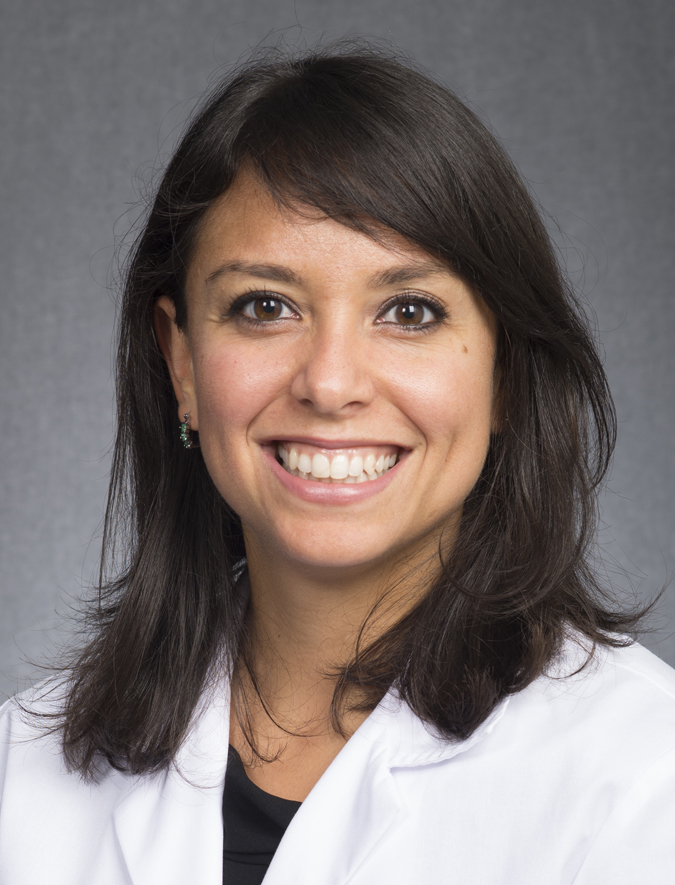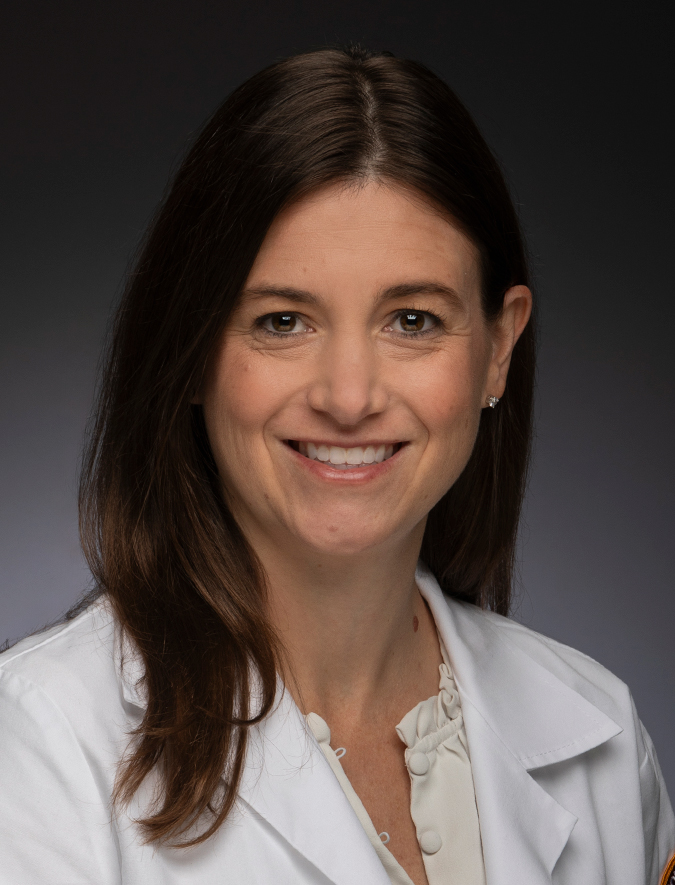Advanced Techniques to Diagnose and Treat Gynecologic Conditions
Loyola Medicine’s gynecology specialists not only offer compassionate routine healthcare for women of all ages, but also have specialized training in the treatment of complex gynecologic conditions.
Our specialists are experienced in detecting and treating gynecologic cancers with the latest medical and surgical treatments.
Our doctors and surgeons provide an integrated approach to treating gynecologic conditions that include:
- Pelvic organ prolapse
- Polycystic ovary syndrome (PCOS)
- Pregnancy planning
- Premenstrual syndrome
- Sexually transmitted diseases
- Sexual wellness and dysfunction
- Urinary fistula
- Urinary incontinence
- Urinary tract infections
- Uterine anomalies
- Uterine cancer
- Uterine fibroids (myomas)
- Vaginal cancer
- Vaginal fistula
- Vaginal yeast infections
- Vaginitis
- Vulvar cancer
- Vulvodynia, vulvar vestibulitis and benign vulvar conditions
Why Choose Loyola for Gynecology?
Loyola provides truly integrated clinical gynecologic care for women, bringing together specialists in obstetrics and gynecology, primary care, female pelvic medicine and reconstructive surgery and urogynecology to provide women with advanced care in a compassionate environment.
As part of an academic medical center, Loyola’s expert clinicians perform and teach the latest surgical techniques and medical treatments in numerous locations across the Chicago area. Our doctors and advanced practice nurses provide preventive care for women of all ages, from young girls to menopausal women.
If you are considering surgery or need subspecialty care, Loyola’s specialists are experienced in the treatment of pelvic floor conditions, urogynecologic issues, gynecologic cancers, high-risk pregnancy concerns, infertility problems and sexual wellness issues. In addition, our nurses have earned Magnet status, which means they have been recognized for delivering the highest level of care.
How are Gynecologic Conditions Diagnosed?
Women are encouraged to start preventive care by having their first gynecologic visit between the ages of 13 and 18. Your gynecologist will first take a detailed medical and family history and discuss routine gynecologic screening tests, such as self breast exams, mammograms and Pap tests.
A pelvic exam is not usually performed before age 18 unless the patient has a specific problem, such as irregular periods, unusual vaginal discharge or pelvic pain.
Pelvic exams are recommended for all women beginning at age 21. At this age, women should start being screened for cervical cancer with a Pap test. It is also suggested that sexually active teens be tested for STDs, which can be done without a pelvic exam.
You should have your first mammogram at age 40, unless you have a family history of breast cancer or have encountered a suspicious lump. In that case, your doctor may recommend a mammogram at an earlier age.
Your gynecologist also may discuss other tests, such as blood tests to check cholesterol and blood glucose levels, blood pressure levels, skin cancer checks, bone density tests and colonoscopies. Your doctor may use these and other tests to evaluate any symptoms you may be having. Testing may include:
- Blood tests
- CT scans (computed tomography)
- Lab tests
- Mammograms
- Minimally invasive exploratory surgery
- Pelvic exams
- Ultrasounds
How are Gynecologic Conditions Treated?
Loyola’s gynecologists specialize in the diagnosis, treatment and management of gynecologic conditions, as well as the gynecologic health of women. Your doctor will first explore conservative, non-surgical treatments to address your condition.
However, if surgery is deemed the best treatment option, Loyola’s gynecologic surgeons can provide expert care for a wide range of conditions. Your surgeon may suggest minimally invasive gynecologic surgery, which speeds healing and the return to daily activities.
Loyola’s gynecologists have received specialized training to diagnose complex conditions and provide the most advanced treatment options. Treatment for gynecologic conditions may include:
- Cystectomy — The partial or total removal of the bladder can be used to treat bladder cancer.
- Endometrial treatments — Your doctor may recommend either medical or surgical treatment of endometriosis. Medical treatment may include pain medication and hormone therapy. If surgery is deemed the best course of action and you are a good candidate, your surgeon will suggest minimally invasive surgery. Some cases, however, may require traditional surgery.
- Hysterectomy — The uterus may be surgically removed to treat several conditions. Your surgeon may suggest laparoscopic or physician-guided robotic surgery for this procedure.
- Hysteroscopy — Used in both inpatient and outpatient settings, your doctor may use a medical lighted tube to examine the cervix and interior uterine walls or remove fibroids or polyps.
- Injections — Botox® injections may be used to relieve urinary incontinence symptoms, as well as overactive bladder.
- Medications — A variety of gynecologic conditions can be treated through medication. Your doctor will discuss the best therapy with you.
- Myomectomy — Uterine fibroids can be removed with laparoscopic or traditional surgery.
- Oophorectomy — The surgical removal of the ovaries can be performed alone or in conjunction with the removal of the uterus. This often can be performed with minimally invasive surgery. Some women opt for this surgery if they are at high risk for breast or ovarian cancer.
- Ovarian cystectomy — Ovarian cysts can be removed with minimally invasive surgery.
- Pelvic floor physical therapy — Loyola’s program works in conjunction with our chronic pelvic pain program, which was one of the first such programs in the United States. Our all-female team utilizes advanced techniques to provide relief for many treatment-resistant conditions. Our team is trained in pelvic health and may use hands-on techniques to release trigger points and re-educate muscles affected by pelvic and nerve pain. Loyola’s physical therapists are skilled in evaluating and treating dysfunction in the joints, muscles, nerves and scar tissue. These treatments can help strengthen pelvic muscles, which may reduce pelvic and bladder pain, bladder spasms, leakage and the sudden urge to urinate. Learn more about pelvic floor physical therapy.
- Supracervical hysterectomy — This operation, which can be performed with minimally invasive surgery, removes the uterus above the cervix. The cervix can be treated so that it does not lead to menstruation.
- Uterine artery embolization — This minimally invasive treatment uses a slender, flexible tube to inject medically manufactured particles into the arteries that feed a fibroid tumor in the uterus. This cuts off the blood supply, causing the fibroids to shrink and die.
Specialized Care to Diagnose and Treat Gynecologic Conditions
Loyola’s gynecologists provide care for women of all ages outstanding, conveniently located facilities. We have multidisciplinary facilities at the Loyola University Medical Center campus, in addition to outpatient services at other locations.
We offer the following specialized services to provide you with the most comprehensive care:
- Chronic pelvic pain program — Too many women suffer in silence with pelvic pain, but great advances have been made in diagnosing and treating these conditions. Our team can help ease or erase your symptoms.
- Female pelvic medicine and reconstructive surgery program — Loyola’s all-female urogynecology team has experience treating a wide array of conditions and was one of the first centers to employ minimally invasive procedures.
- Gynecologic cancer program — Loyola’s dedicated doctors are highly skilled in diagnosing and treating all forms of gynecologic cancer and can offer special treatments available only through clinical trials at Loyola.
- Gynecologic surgery — Laparoscopic and physician-guided robotic surgery provides numerous benefits, including reduced pain and a quicker return to your normal activities. Ask your surgeon if minimally invasive surgery is an option for you.
- Pediatric gynecology — Loyola’s pediatric gynecologists have experience in treating children with great care. They provide compassionate care with children in mind, taking the time to explain treatment options and procedures to children and their parents.
- Pelvic floor physical therapy — Loyola’s program works in conjunction with our chronic pelvic pain program, which was one of the first such programs in the United States. Our all-female team utilizes advanced techniques to provide relief for many treatment-resistant conditions. Our team is trained in pelvic health and may use hands-on techniques to release trigger points and re-educate muscles affected by pelvic and nerve pain. Loyola’s physical therapists are skilled in evaluating and treating dysfunction in the joints, muscles, nerves and scar tissue. These treatments can help strengthen pelvic muscles, which may reduce pelvic and bladder pain, bladder spasms, leakage and the sudden urge to urinate. Learn more about pelvic floor physical therapy.
- Reproductive endocrinology and infertility program — If you and your partner have been struggling with infertility, or you have symptoms of a hormonal condition, talk with our team about the many treatment options that are now available.
- Sexual wellness program — Through educational sessions and counseling, Loyola’s program helps couples overcome barriers to greater intimacy.
- Well-woman care — Loyola’s doctors are great believers in preventive care and will provide guidance on healthy living, as well as recommendations for health screenings based on age and risk factors.
Comprehensive Prevention and Screening Programs for Women
Loyola’s gynecologists provide recommendations for timely and appropriate screenings, tests and vaccinations based on your age and risk factors.
Your healthcare team knows that preventive care and routine screenings lead to better outcomes. Your doctor may recommend the following preventive health measures:
- Breast exams and imaging — Loyola’s gynecologists perform clinical breast exams at annual visits and provide instruction on performing self exams. Your doctor will also recommend more detailed imaging for any abnormalities, as well as mammograms for regular screening for women over 40 or earlier for women at high risk. Learn more about breast imaging.
- Cancer screening — Based on your age, family history and medical history, your Loyola doctor will provide personalized recommendations for screening tests. Your doctor knows that early detection is the key to fighting cancer and will emphasize testing for cancers for which you are at highest risk. Learn more about cancer screening.
- Genetic counseling — Your doctor may recommend genetic testing to determine your predisposition to diseases and health conditions, the likelihood of passing them to your children and how to plan the most effective treatments for health issues you are experiencing. Learn more about genetic counseling.
- HIV and STD screening — Early treatment has proven important for the successful management of HIV/AIDS. Screening also can reduce the spread of STDs.
- HPV vaccine — Girls and young women can prevent cervical cancer, vulvar cancer, vaginal cancer, anal cancer, genital warts and protect against HPV infection with a series of three HPV vaccinations. Boys also benefit from the HPV vaccine.
- Mammogram — A mammogram is the best screening test for breast cancer and uses X-ray technology to create detailed images of the breast. Loyola uses digital mammography, which shows greater detail than earlier mammogram technology.
- Osteoporosis screening — Osteoporosis can severely affect the health of an otherwise healthy person. Fortunately, detection is easy and many treatment options are now available.
- Pap test — This quick test can detect cervical cancer early, which increases the chances of a successful outcome.
<h2>
Advanced Research to Improve Treatment of Gynecologic Conditions
</h2>
<p>
Loyola’s expert gynecologists are actively pursuing new research with a focus on patient-centered outcomes, including studies on:
</p>
<div class="row">
<div class="columns large-6" style="width:50%;" important="">
<ul>
<li>
Aging and pelvic floor function
</li>
<li>
Birth trauma and incontinence
</li>
<li>
Botox® injections and urinary incontinence
</li>
<li>
Endometriosis
</li>
<li>
Infertility issues
</li>
<li>
Intrauterine growth restriction
</li>
<li>
Multifetal pregnancies
</li>
</ul>
</div>
<div class="columns large-6" style="width:50%;" important="">
<ul>
<li>
Pelvic floor dysfunction
</li>
<li>
Polycystic ovaries
</li>
<li>
Predictors of normal fertility
</li>
<li>
Reproductive technology
</li>
<li>
Surgery and urinary incontinence
</li>
<li>
Uterine fibroids
</li>
</ul>
</div>
</div>
<p>
As an academic medical center, Loyola is dedicated to improving future treatments by conducting research on new diagnostics and treatments. Loyola’s patients benefit from research discoveries made here; read about Loyola’s current <a href="/node/9634" data-entity-type="node" data-entity-uuid="c2317954-bc54-4a4e-b9c8-0b1515880e3b" data-entity-substitution="canonical">clinical trials</a>.
</p>












